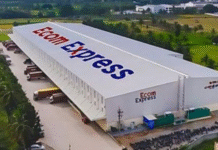New Delhi— E-waste recycling company Attero on Thursday announced plans to significantly scale up its rare earth element (REE) recycling capacity—from 300 tonnes to 30,000 tonnes annually—over the next 12 to 24 months, backed by an investment of ₹100 crore.
The expansion aligns with India’s National Critical Mineral Mission (NCMM), launched in 2025 to reduce the country’s reliance on imported critical minerals and strengthen self-reliance in strategic supply chains, the company said in a statement.
Rare earth elements such as Neodymium (Nd), Praseodymium (Pr), and Dysprosium (Dy) are vital for sectors including electric vehicles, wind energy, and consumer electronics. With the global REE market projected to reach $10.9 billion by 2029 at a compound annual growth rate (CAGR) of 12.6%, and REE magnet demand expected to surpass $30.3 billion by 2033, developing domestic recycling and extraction capabilities has become a national priority.
“Attero has long championed India’s need for self-reliance in critical minerals to reduce import dependency and counter China’s dominance in global REE supply chains,” said Nitin Gupta, CEO and Co-founder of Attero. “We’re proud to be the only Indian company with proven deep-tech and globally patented processes to refine black mass and recover rare earth elements with over 98% efficiency and 99.9% purity.”
Gupta said the company is prepared to expand its capacity from handling 1 tonne per day to 100 tonnes per day, targeting a total annual output of 30,000 tonnes and potential further growth as demand accelerates.
Attero’s proprietary technology enables efficient extraction of REEs from end-of-life electronics—including hard disk drives, laptops, neckbands, and earphones—which are rich in rare earth materials like Nd, Pr, Ce, Gd, and Dy. The process is both cost-effective and energy-efficient, producing significantly fewer greenhouse gas emissions than traditional mining.
The company also remains the only player in India capable of refining black mass—a byproduct of used lithium-ion batteries—into high-purity critical metals such as lithium, cobalt, nickel, and manganese, reinforcing its leadership in the circular economy for strategic materials.
In FY25, Attero processed over 150,000 tonnes of e-waste and 15,000 tonnes of lithium-ion batteries, and is targeting 100% year-on-year growth going forward. (Source: IANS)








